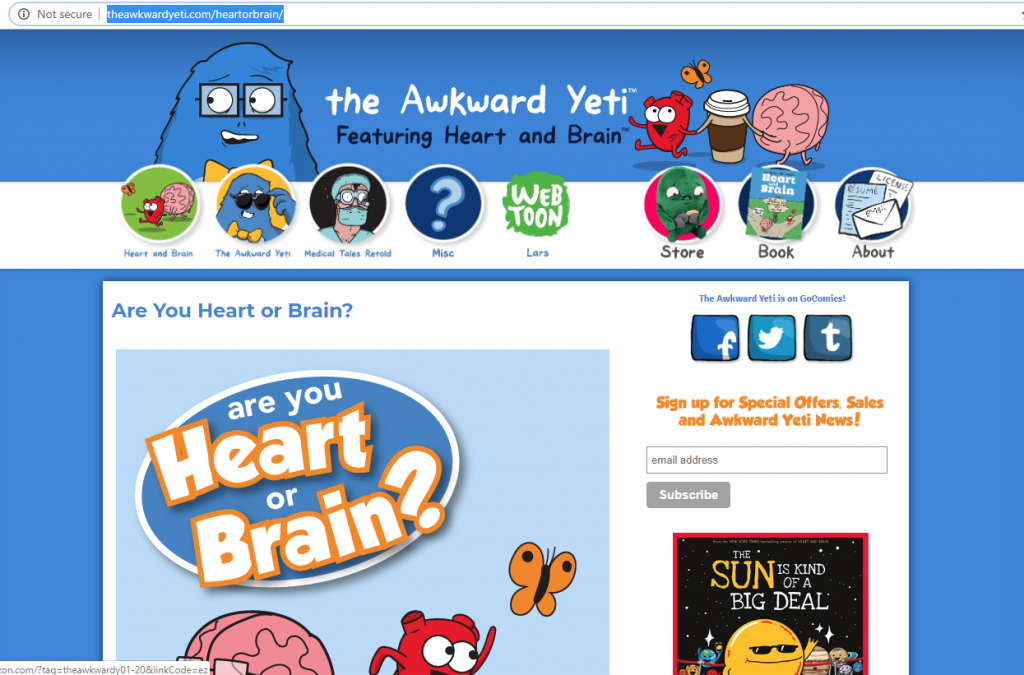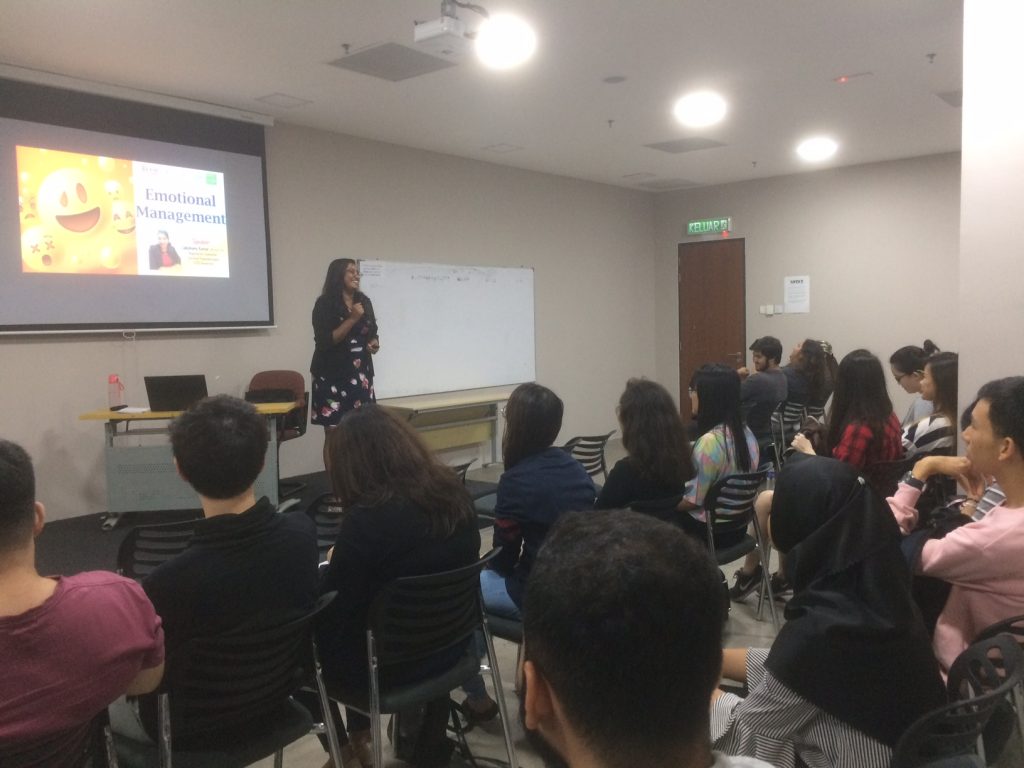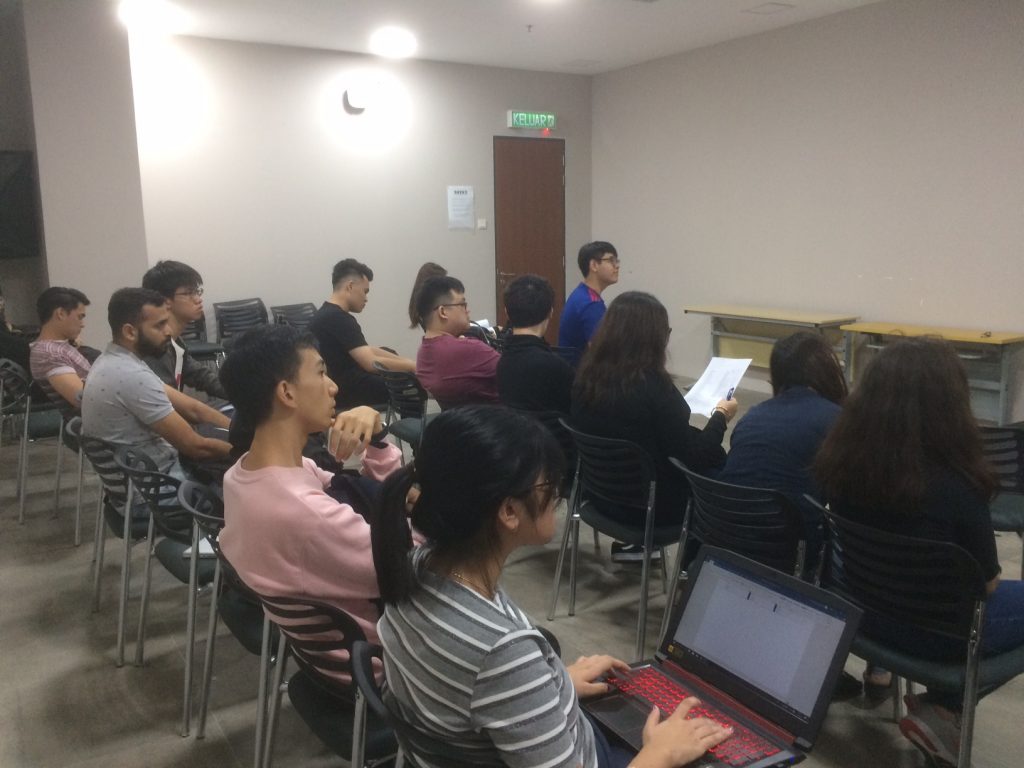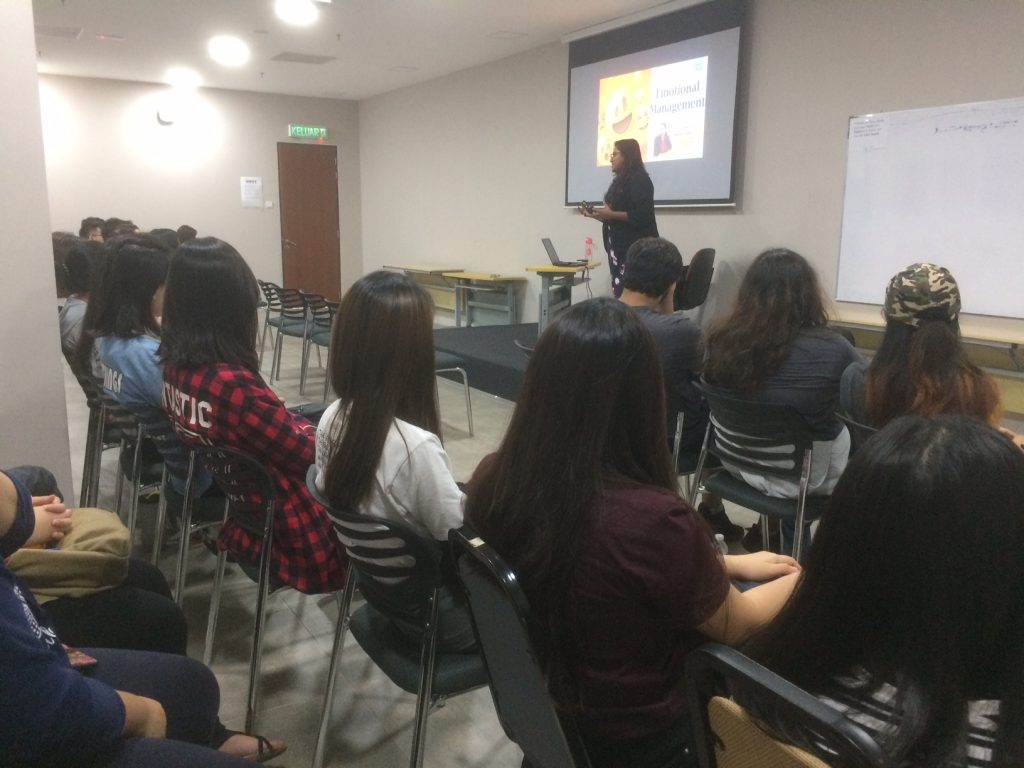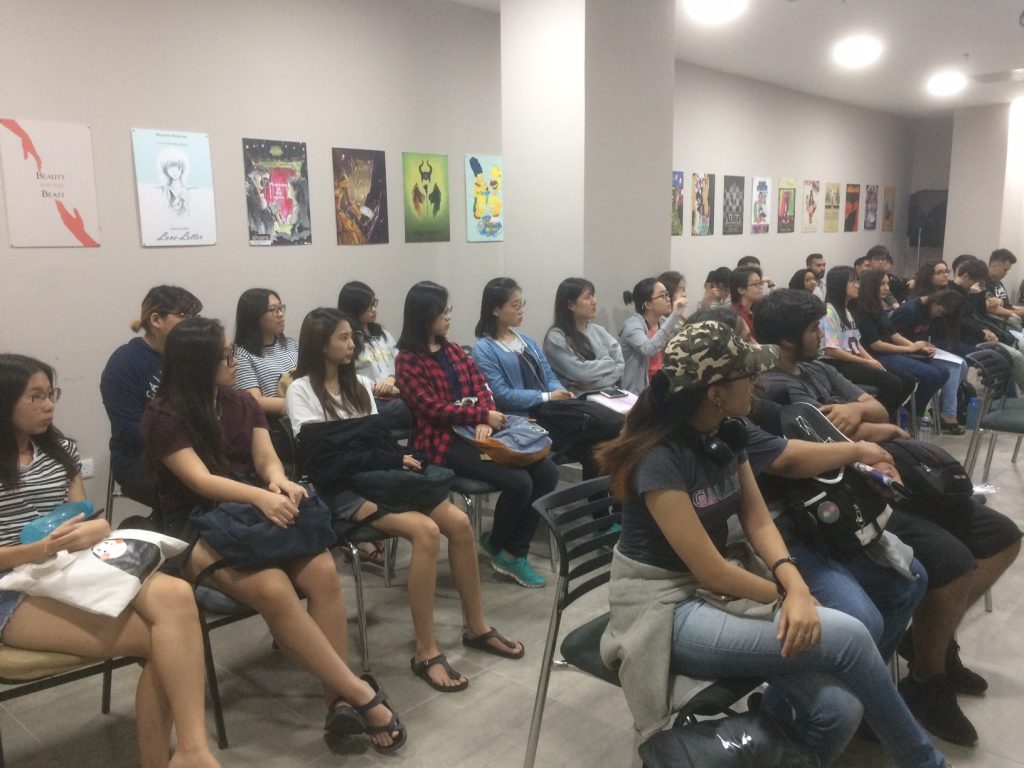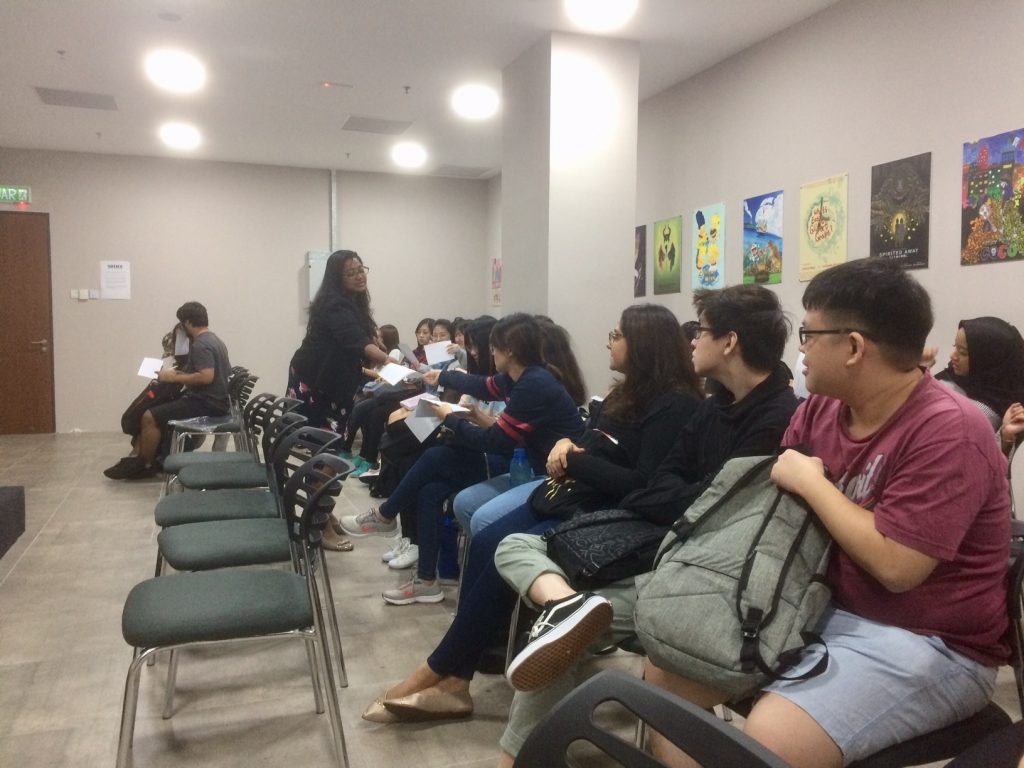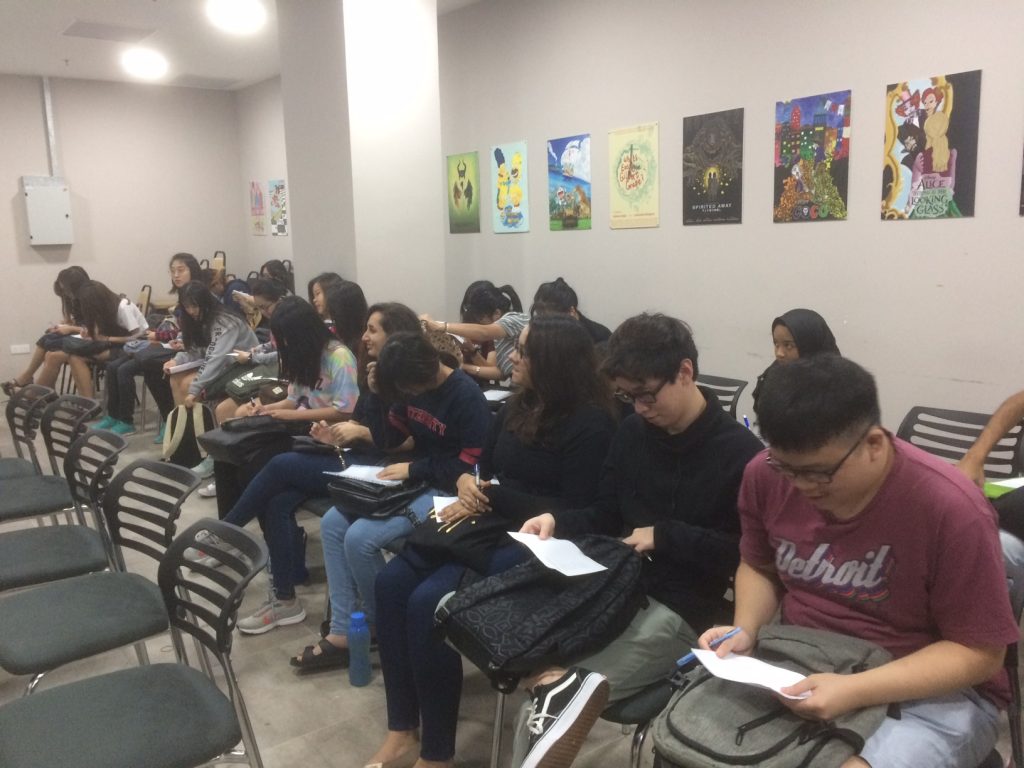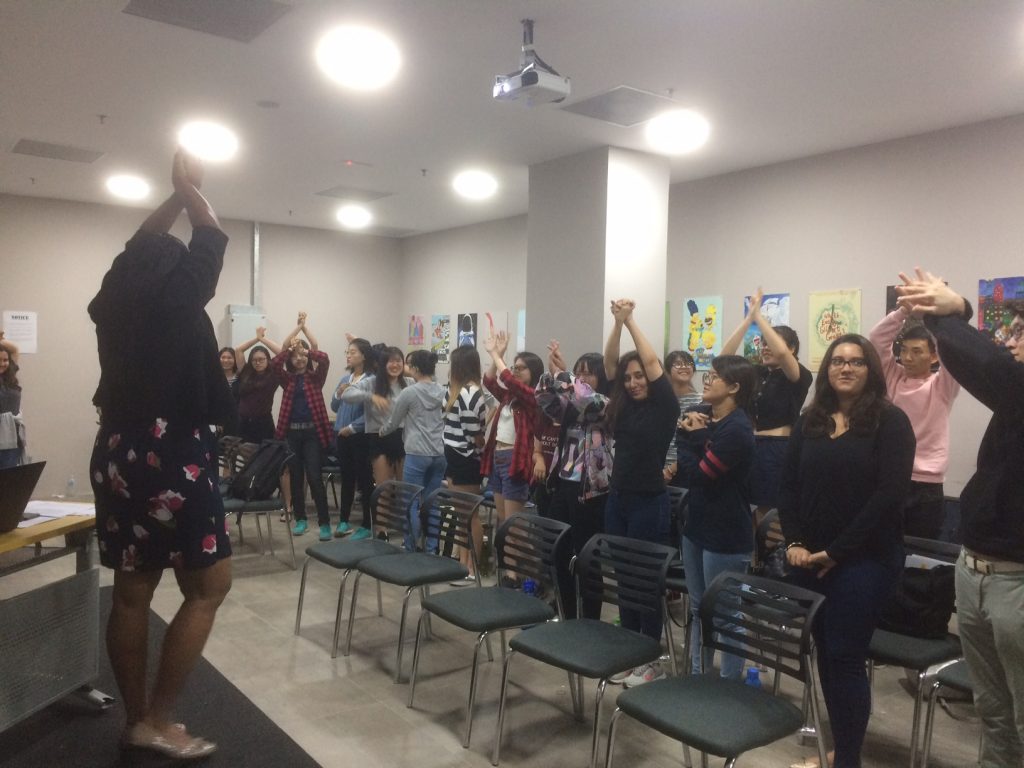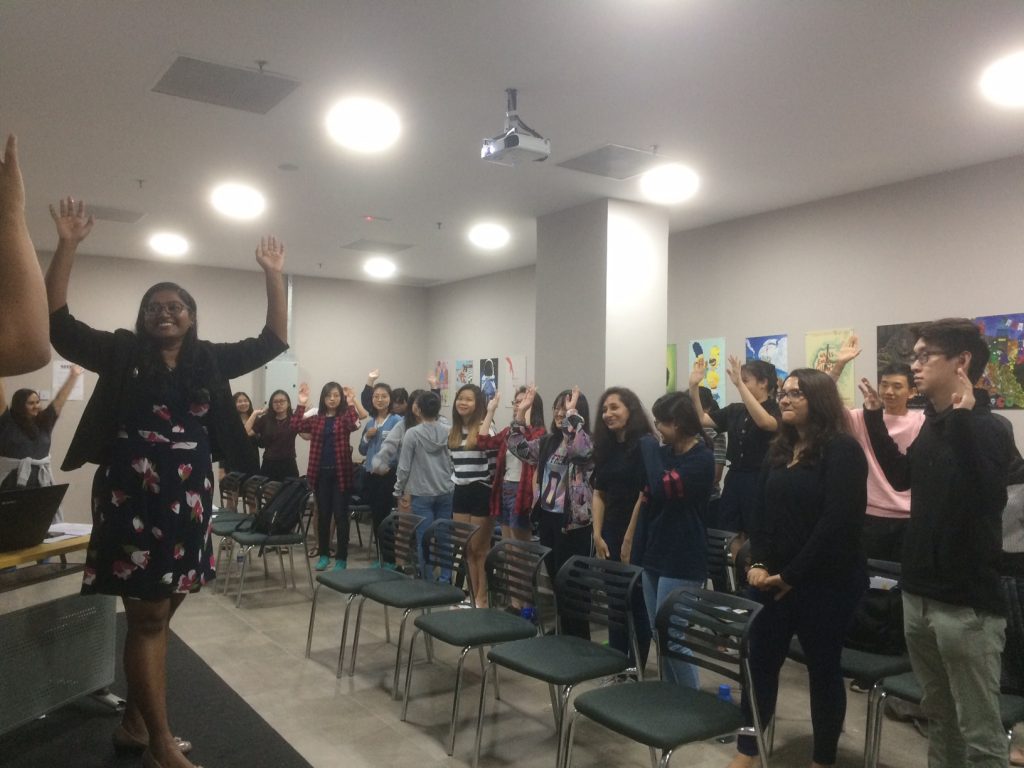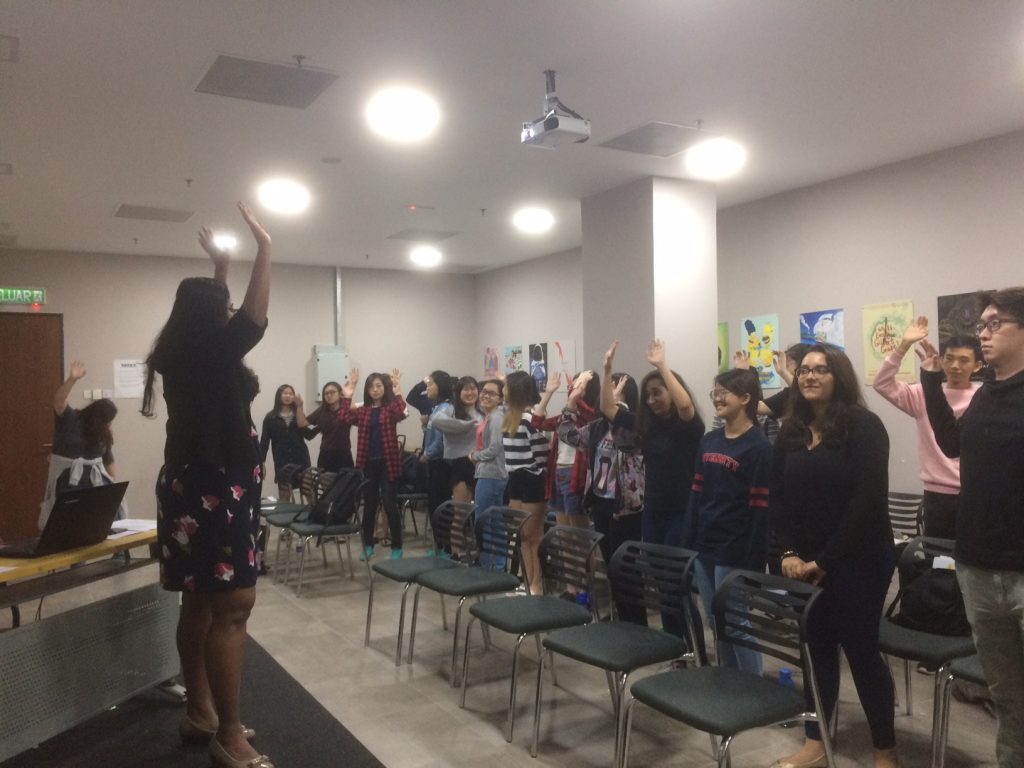Managing Emotions: Are You Heart or Brain, or Both?
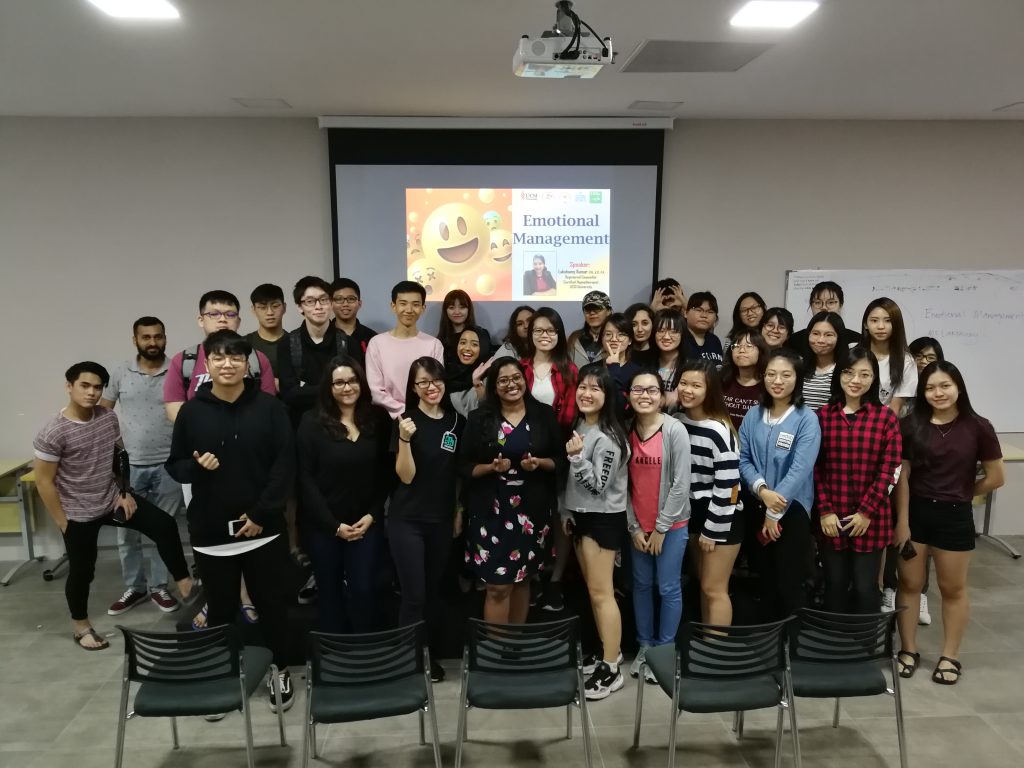
Group photo with Ms Lakshumy
The world today can be a harsh and judgmental place, especially when keyboard warriors get too far in this digital age. People tend to get pressured and stressed out easier than before when comments are thrown upon not only from the physical social circle one has, but also those virtual strangers.
Why do we need these overwhelming negative vibes?
Student Development & Counselling Department (SDCD), under the auspices of UCSI University Students Activities and Recreation (SAA) Department, is a body established with an aim to help students in dealing with the challenges and difficulties through their study journey as well as to guide and empower them in overcoming challenges. Under SDCD, there are three major categories of development programmes cater for students and staffs. This time around, the topic of emotion management was brought to a great discussion by a Registered Counsellor and a Certified Hypnotherapist under SDCD, Ms Lakshumy Kumar.
Gathered together, it was a beautiful afternoon filled with inspiration for all the participants. In collaboration with UCSI SDCD, Faculty of Social Sciences and Liberal Arts (FOSSLA) which intends to create and increase the awareness among the students about the importance of the emotional management and how best to tackle emotions, organised this mental well-being programme for the benefits of FOSSLA students for free.
“I strongly believe that an individual’s emotion will affect their thoughts, feeling and behaviours. What I called a 3H principle where your head (thought), heart (feeling) and your hand (behaviours) are interconnected in life. However, many things happen in life can disrupt our emotion which will later affect our thoughts, feeling and behaviour, especially students at this digital age who seems to be lacking in term of emotional intelligence skills. I think it is important to expose them on how to manage their emotion.” said Assistant Professor Dr. Oh Siew Pei as the Deputy Chair of FOSSLA Student Welfare Committee 2019.
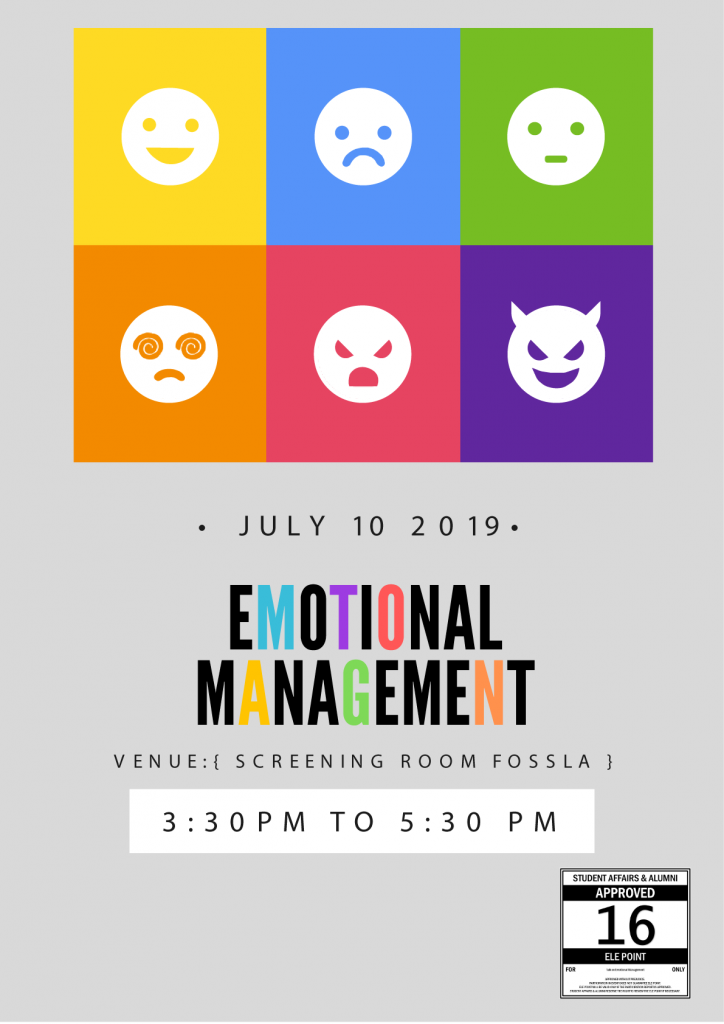
Workshop poster
Do you have your heart and brain as each other’s best friend or enemy?
Ms Lakshumy
When conflict arises, your heart and your brain usually come in together like a ding dong bell, fighting over your attention and recognition. Which one do you follow more often? Do you know as you follow your heart, you are actually keeping your composure by restraining message from your brain (and vice versa) to be processed?
Many students feel pressured to keep their emotions in check in and show a tough exterior. People often describe them as ‘calm’ as they appear cool with any situation. Neither making a scene when upset nor crying in front of others when sad. But, how many of us actually go to them and ask about them? They might have put up a face mask to seem laid-back and indifferent or to present themselves as brave and confident, restraining themselves from exposing their inner feelings to the others. It could be because they were once hurt after opening up or they are holding great responsibilities in a family or company that they could not bare the consequences after the expressing an emotion.
Thereupon, when these ‘calm-looking’ friends emotionally collapse or break down one day, people around them tend to be surprised and shocked receiving this news.
Hence, to detect and identify your emotions or your friend’s emotions, Ms Lakshumy mentioned that emotions come with subjective experience, physiological response and behavioural response.
First of all, subjective experience refers to the different views towards the same matter. For instance, today your friend argues with you that his/her lecturer scolded him/her in front of everyone for not doing enough study before the final presentation. To you, it might be a small matter in the journey of learning and there’s nothing to be angry and disappointed about. However, to him/her, it’s about the face problem and that he/she had done his/her best.
Secondly, physiological response appears when one experience an emotion. It could be a headache, racing heart, cold sweating, shivering or unpleasant facial expression. Sometimes, people even feel the actual heartache when they are overly sad and gloomy.
Last but not least, behavioural response refers to the action one performs when an emotion strikes. To illustrate, when your friend is angry with you, he/she tends to show his/her anger by giving you cold shoulder or avoiding eye contact. Ms Lakshumy, thus, urged everyone to not stop communicating as the old sayings go ‘communication is the key in a healthy relationship’ and ‘eyes are the window to soul’. Manage your emotions, don’t control.
Moreover, besides the talk, two inspirational and fun activities was conducted. Participants were required to fill up an “emotion-check-in” form to self-identify how one associates a happening to one’s emotions. It was interesting to find out that different people associate emotions with happening from different period of time, may be the past, present or future.
Furthermore, a brain gym activity was carried out with participants pairing themselves up. They took turn to direct their partner in moving the right finger according to the instruction given. This activity was not as easy as it seems as both hands were crossed over each other to confuse one’s mind. Ms Lakshumy then explained the complexity of human brain, especially the mystery of the two hemispheres in human brain whereby this activity symbolises life decision that often confuse and conflict oneself. This session had received the most liking from the participants.
“The speaker was friendly and the hand activity was engaging. I learned how to identify my emotions more accurately,” shared Wilson Cheng, one of the participants.
Ms Lakshumy then ended this workshop with a few tips to manage one’s emotions as listed below:
- Take responsibility of your feelings. Accept and acknowledge your feelings. Learn to label your emotions correctly.
- Connect to your emotions. Do not disconnect or shut off your feelings. Moment-to-moment awareness of your emotions and how they influence your thoughts and action is crucial.
- Pay more attention to non-verbal cues. In most cases, what you say is less harmful than how you say it. Make eye contact with your listener or the speaker to achieve a sense of trust and respect.
- Use humour and play to deal with challenges. This can be tricky as walking a fine line is important. Wearing a smiley face mask while bottling up emotions within yourself can be dangerous.
Last note, remain silence will not end the issue. Stop bottling up your feelings, sweeping it under the carpet. How much can you hide your feelings under the carpet? Get someone to talk to, if not, counselor available in SDCD.
You don’t have to be positive all the time.
It’s perfectly okay to feel sad, angry, annoyed, frustrated, scared or anxious.
Having feelings doesn’t make you a ‘negative person’.
It makes you human.
Lori Deschene
______________________________________________________________________________
Took a quick test to check on the relationship between my heart and brain. Here’s the result of mine,
“Talk about Feng shui, you are one balanced individual! Like Brain, you understand the rational way to respond to a situation. But, like Heart, you still need to freak out every once in a while. You’re smart, fun and desperately want people to like you. You have great ideas, but you tend to procrastinate. Ultimately, you know when to buckle down and get things done. Like, when your laundry begins to drag itself into the laundry room, for example.”
Check yours now!
